Nestled against the backdrop of the Margalla Hills, Islamabad, the capital city of Pakistan, is a harmonious blend of modern infrastructure, lush greenery, and cultural richness. This meticulously planned city stands as a testament to Pakistan’s commitment to progress while honoring its natural beauty. Let’s embark on a virtual tour through the enchanting lanes of Islamabad.

The City of the Margalla Hills:
The city you are referring to, with the Margalla Hills in the backdrop, is Islamabad, the capital city of Pakistan. Islamabad is known for its picturesque setting, with the Margalla Hills National Park providing a scenic backdrop to the city. Here are some key points about Islamabad and its association with the Margalla Hills:
- Margalla Hills National Park: The Margalla Hills form a part of the Himalayan range and are located to the north of Islamabad. The Margalla Hills National Park encompasses these hills and provides a natural green space for residents and visitors. The park is home to diverse flora and fauna and offers hiking trails and recreational opportunities.
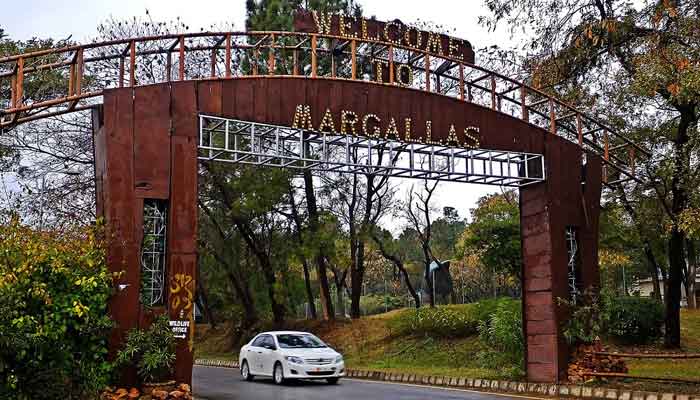
- Scenic Beauty: The Margalla Hills add to the aesthetic appeal of Islamabad, making it unique among major cities. The hills not only contribute to the natural beauty of the city but also serve as a popular destination for outdoor activities such as hiking and bird-watching.
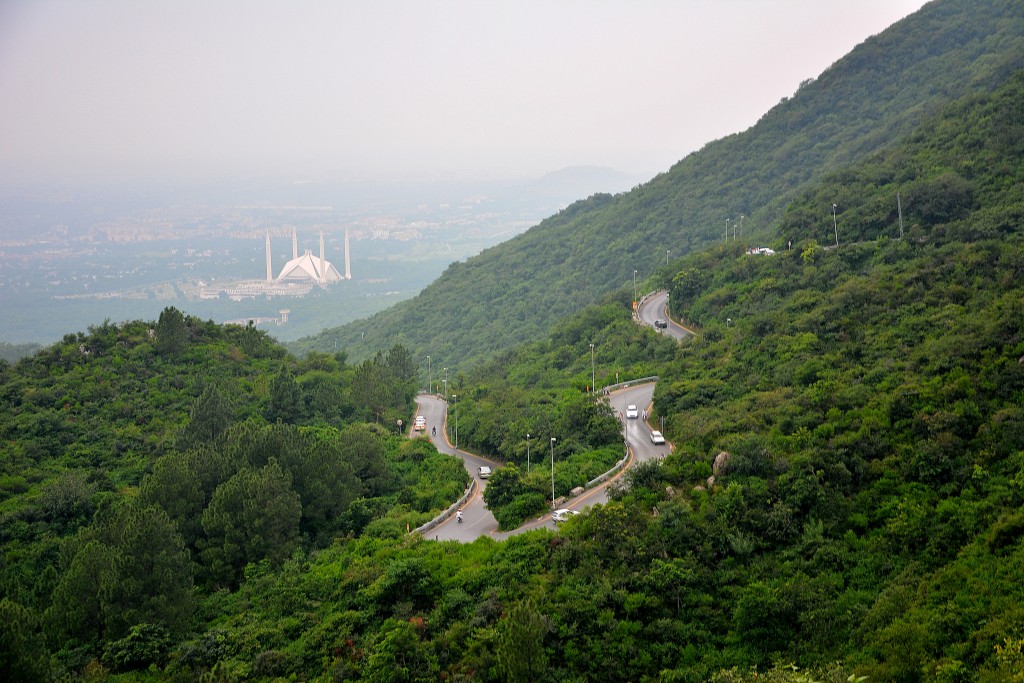
- Trail Networks: Several hiking trails traverse the Margalla Hills, offering varying degrees of difficulty and stunning views of the surrounding landscape. Popular trails include the Trail 3, Trail 5, and the Margalla Ridge Trail, attracting both locals and tourists who enjoy outdoor activities.

- Daman-e-Koh: Daman-e-Koh is a viewpoint located in the Margalla Hills National Park that provides a panoramic view of Islamabad. It is a popular spot for both locals and tourists to enjoy the cityscape and the Margalla Hills.
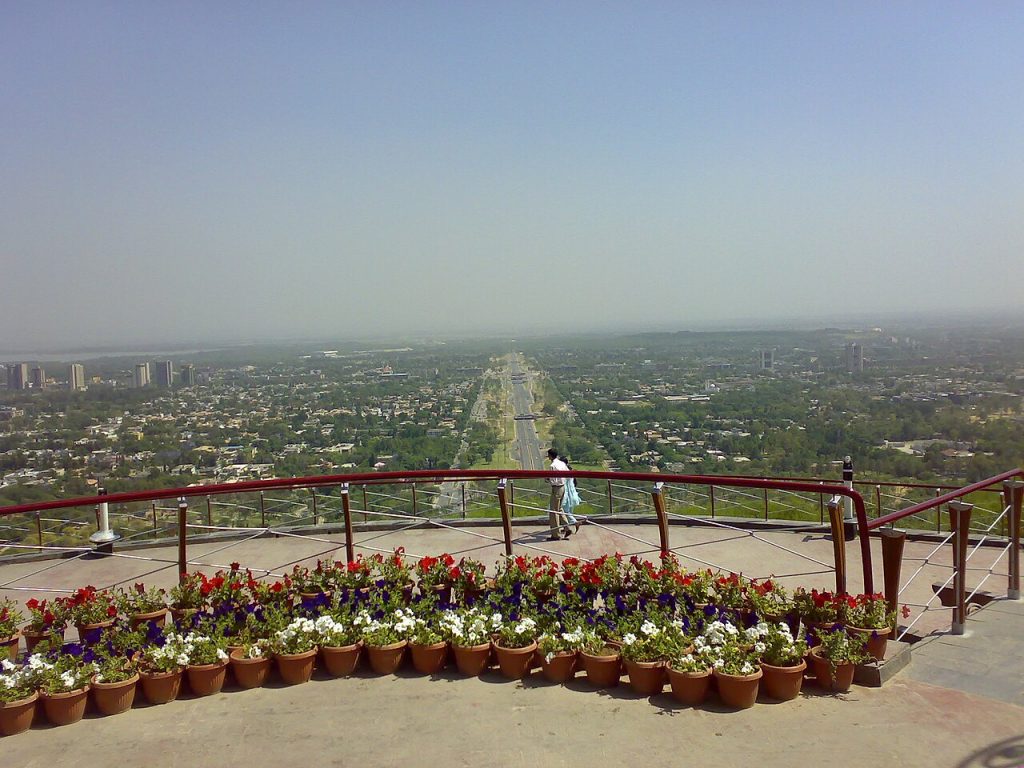
- Conservation Efforts: The Margalla Hills National Park is important for the conservation of biodiversity. Efforts are made to protect the natural habitat, and various initiatives promote environmental awareness and sustainable practices.
- Cultural Significance: The Margalla Hills have cultural and historical significance as well. The area is home to archaeological sites and caves that date back to ancient times, reflecting the region’s rich history.
Overall, the Margalla Hills contribute significantly to the identity of Islamabad, providing a unique blend of urban living and natural beauty. Residents and visitors alike appreciate the opportunity to explore the hills, engage in recreational activities, and enjoy the serene environment they offer in the midst of the bustling city.
Architectural Marvels:
Islamabad, the capital city of Pakistan, is known for its well-planned layout and modern architecture. While it may not have as many historical architectural marvels as some other cities, it boasts several noteworthy structures that showcase contemporary design and cultural significance. Here are some architectural marvels in Islamabad:
- Faisal Mosque: Perhaps the most iconic architectural landmark in Islamabad, the Faisal Mosque is not only a religious site but also a symbol of modern Islamic architecture. Designed by the Turkish architect Vedat Dalokay, it is the largest mosque in Pakistan and one of the largest in the world. The mosque’s unique and contemporary design includes a sloping roof and four minarets.
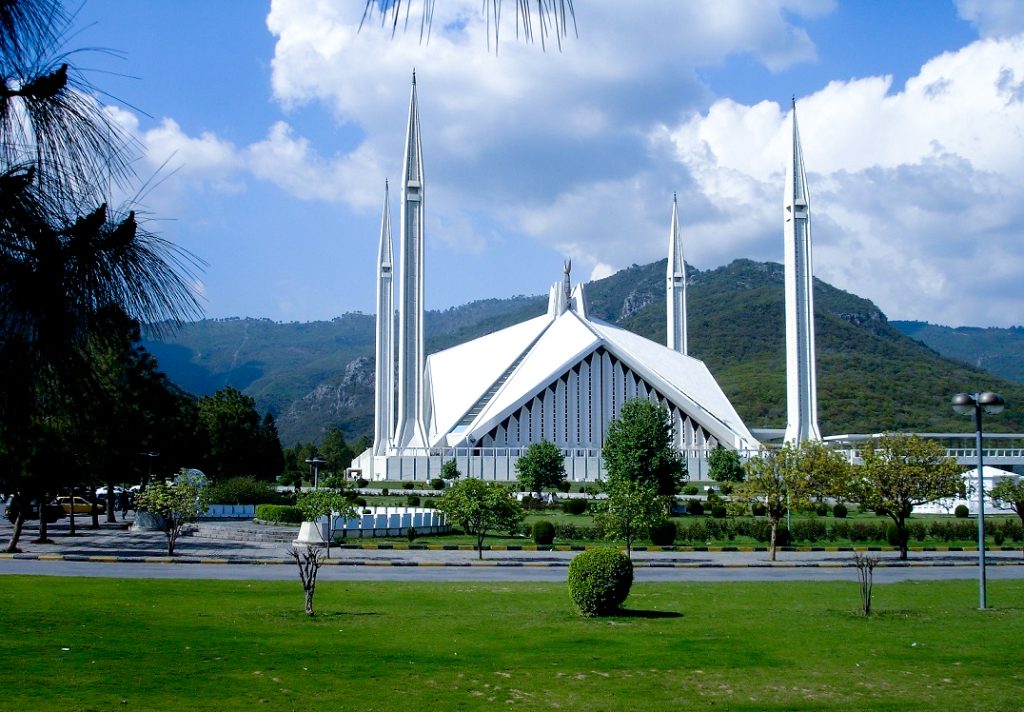
- Pakistan Monument: The Pakistan Monument is a national symbol representing the four provinces of Pakistan. Shaped like a blooming flower, the structure consists of four petals, each representing one province, and a central platform representing the capital territory. The complex includes a museum and an art gallery.
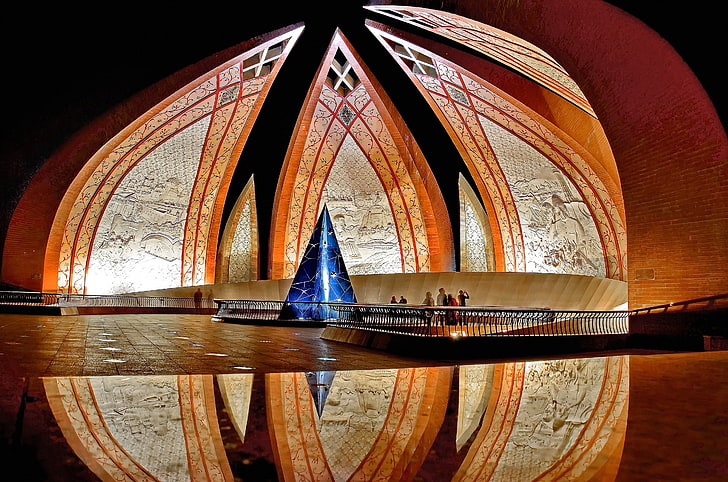
- Daman-e-Koh Viewpoint: While not a building, Daman-e-Koh is a significant viewpoint located in the Margalla Hills National Park. It offers a breathtaking panoramic view of Islamabad and is a popular spot for locals and tourists alike.
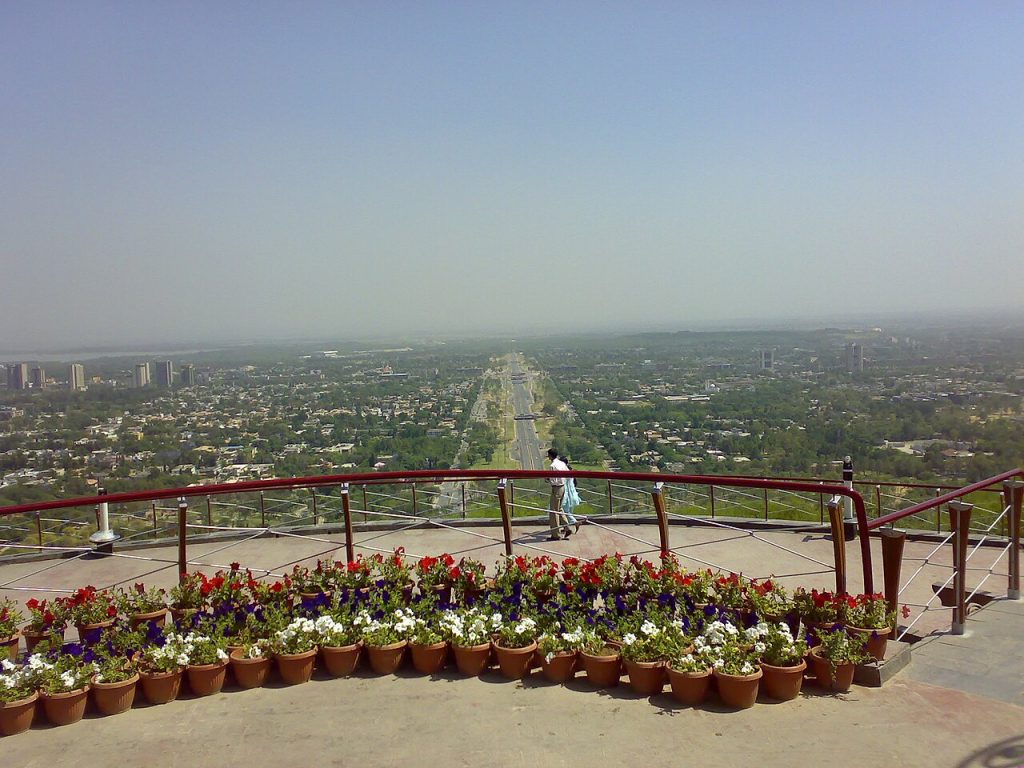
- Shah Faisal Mosque Library: Adjacent to the Faisal Mosque, the Shah Faisal Mosque Library is an architectural gem. The library’s design is characterized by a blend of modern and traditional elements, providing a serene environment for reading and research.
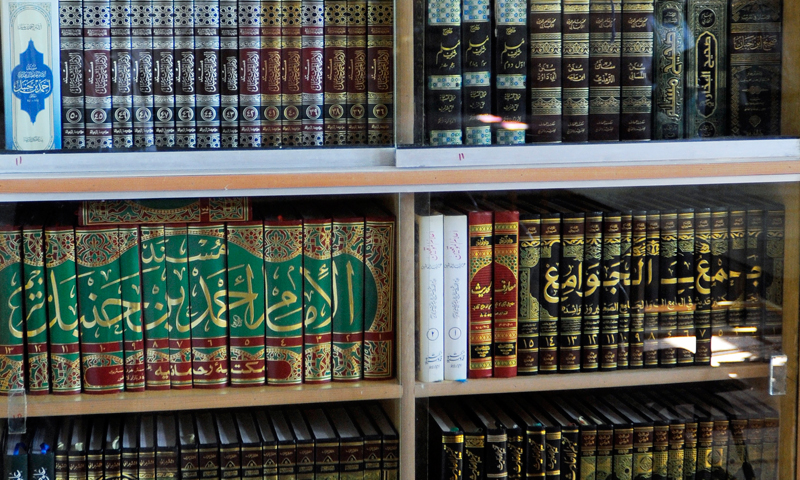
- Pakistan National Council of the Arts (PNCA): The PNCA building is known for its unique architecture, blending traditional and modern elements. The complex houses galleries, theaters, and exhibition spaces, promoting and showcasing Pakistani arts and culture.

- Rawal Lake View Point: Though not a specific building, the Rawal Lake View Point offers stunning views of Rawal Lake and the surrounding hills. It’s a popular destination for both locals and tourists seeking a peaceful retreat.

While these examples may not fit the traditional definition of historical architectural marvels, they represent Islamabad’s commitment to modern and innovative architectural designs. The city’s architecture is a blend of functionality, aesthetics, and cultural symbolism, contributing to its unique character.
Modern Infrastructure:
- Blue Area:
The Blue Area in Islamabad is a bustling business district featuring modern skyscrapers, corporate offices, and upscale shopping centers. It is a hub of economic activity and commerce.
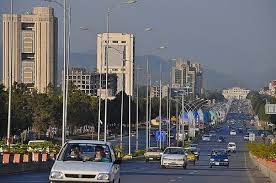
2. Centaurus Mall:
The Centaurus Mall, with its contemporary architecture, is a premier shopping and entertainment destination. It houses a variety of international and local brands, restaurants, and a multiplex cinema.

Cultural Enclaves:
- Pakistan National Council of Arts (PNCA):
PNCA is a cultural hub promoting visual and performing arts. Its galleries showcase traditional and contemporary artworks, and the auditorium hosts cultural events, theater performances, and musical concerts.
2. Lok Virsa Museum:
The Lok Virsa Museum celebrates Pakistan’s diverse cultural heritage. Visitors can explore traditional crafts, music, and artifacts, providing insights into the country’s rich history.
Green Oases:
- Shakarparian Park:
Shakarparian Park, situated on the Shakarparian Hills, offers a peaceful retreat with beautifully landscaped gardens and an open-air amphitheater. It is a popular spot for family picnics and outdoor activities.
2. Rawal Lake:
Rawal Lake is a serene reservoir that provides a scenic escape from the urban hustle. Boating on the lake or strolling along the trails offers a refreshing experience.
Educational and Diplomatic Hub:
Islamabad, being the capital city of Pakistan, is home to several educational institutions, making it a significant education hub in the country. The city hosts a diverse range of schools, colleges, universities, and research institutions. Here are some notable educational institutions in Islamabad:
- Quaid-i-Azam University (QAU): Established in 1967, Quaid-i-Azam University is one of the most prestigious and renowned universities in Pakistan. It offers undergraduate, graduate, and postgraduate programs in various disciplines, including natural sciences, social sciences, humanities, and business.
- COMSATS Institute of Information Technology (CIIT): COMSATS is a well-known institute with its main campus located in Islamabad. It is recognized for its emphasis on science and technology education and offers programs in engineering, computer science, business administration, and other fields.
- Pakistan Institute of Engineering and Applied Sciences (PIEAS): PIEAS is a premier engineering and research institute in Islamabad, specializing in nuclear science and technology. It is known for its high academic standards and research contributions.
- National University of Sciences and Technology (NUST): NUST is a top-ranking institution in Pakistan, offering programs in engineering, business, social sciences, and natural sciences. It has several campuses across the country, with its main campus located in Islamabad.
- International Islamic University Islamabad (IIUI): IIUI is a major institution offering a range of programs with an Islamic perspective. It has faculties in social sciences, natural sciences, engineering, and humanities.
- Allama Iqbal Open University (AIOU): AIOU is a distance education institution that provides educational opportunities to a diverse range of students. It offers programs at various levels, including secondary education, undergraduate, and postgraduate studies.
- Pakistan Institute of Fashion and Design (PIFD): PIFD is a specialized institute focusing on fashion and design education. It offers programs in fashion design, textile design, and fashion marketing and merchandising.
- NUML – National University of Modern Languages: NUML is known for its emphasis on language education and cultural studies. It offers programs in languages, literature, and social sciences.
- Roots Millennium Schools: The Roots Millennium Schools are a chain of private schools in Islamabad offering quality education from the preschool level to higher secondary education.
- Beaconhouse School System: Beaconhouse is one of the largest private school networks in Pakistan, and it has multiple campuses in Islamabad. It offers education at various levels, from early childhood to higher secondary.
These are just a few examples, and Islamabad has a wide range of educational institutions catering to different academic disciplines and levels of education. The city’s status as the capital contributes to the presence of many government and private educational organizations, making it a significant educational hub in Pakistan.
Culinary Delights:
Islamabad, being a cosmopolitan city and the capital of Pakistan, offers a diverse culinary scene with a wide range of dining options. The city is home to various restaurants, cafes, and street food stalls, serving both local Pakistani dishes and international cuisines. Here are some culinary delights you can explore in Islamabad:
- Local Pakistani Cuisine:
- Kebabs: Islamabad is known for its delicious kebabs, whether they are seekh kebabs, chapli kebabs, or shami kebabs. F7 Markaz and F10 Markaz are popular areas for kebab joints.
- Nihari and Paya: Try traditional Pakistani breakfast options like nihari (slow-cooked stew) and paya (beef or goat trotters) at local eateries.
- Street Food:
- Golgappa (Pani Puri): Head to street food stalls for golgappas, a popular snack consisting of hollow puris filled with a mixture of spicy and tangy flavored water, chickpeas, potatoes, and tamarind chutney.
- Chapli Kebab Rolls: Enjoy chapli kebabs wrapped in paratha or naan, available at various street vendors.
- Desi Breakfast Places:
- Chai Shai: A popular spot for traditional Pakistani breakfast items like parathas, nihari, and chai. The cozy ambiance makes it a favorite among locals.
- International Cuisines:
- Chinese Restaurants: Islamabad has several Chinese restaurants offering a variety of dishes ranging from noodles and dumplings to sweet and sour delights.
- Italian and Mediterranean Cuisine: Explore upscale restaurants in F-6 and F-7 sectors for Italian and Mediterranean options.
- Coffee Shops and Cafes:
- Chaye Khana: A trendy cafe known for its diverse tea menu, offering a cozy ambiance and a variety of snacks and desserts.
- Street 1 Cafe: Located in F-6, it’s a popular spot for coffee, sandwiches, and desserts.
- Fine Dining:
- Monal Restaurant: Perched on the hills, Monal offers breathtaking views of Islamabad. It serves a mix of Pakistani and continental cuisine.
- Virsa BBQ and Grill: Known for its barbecue and grilled dishes, Virsa provides a pleasant dining experience with outdoor seating.
- Dessert Places:
- Hot Spot: Famous for its wide range of desserts, including cakes, pastries, and ice creams.
- Jammin Java Cafe: A popular choice for coffee and dessert lovers, offering a variety of cakes and pastries.
- Food Streets:
- Melody Food Street: This bustling food street in Islamabad is known for its variety of street food, local snacks, and traditional dishes.
- Safa Gold Mall Food Court: The food court in Safa Gold Mall offers a mix of local and international fast food options.
These are just a few examples of the culinary delights you can explore in Islamabad. The city’s diverse food scene caters to various tastes, from traditional Pakistani dishes to international flavors, making it a vibrant culinary destination.
The Capital’s Charm:
- Clean and Green City:
Islamabad is often lauded for its cleanliness and greenery. The city’s well-maintained parks, tree-lined avenues, and strict environmental regulations contribute to its aesthetic appeal.
2. Planned Urban Development:
Islamabad’s meticulous urban planning is evident in its organized sectors, wide roads, and scenic landscapes. The city’s layout reflects a commitment to sustainability and aesthetics.
Conclusion: A Symphony of Tranquility and Progress:
In Islamabad, the rhythm of progress harmonizes with the serenity of nature. The city’s modernity coexists seamlessly with its cultural and natural heritage, making it a unique destination that caters to a diverse array of interests. Whether you find solace in the Margalla Hills, explore architectural marvels, or indulge in cultural experiences, Islamabad invites you to join in its serene symphony.
